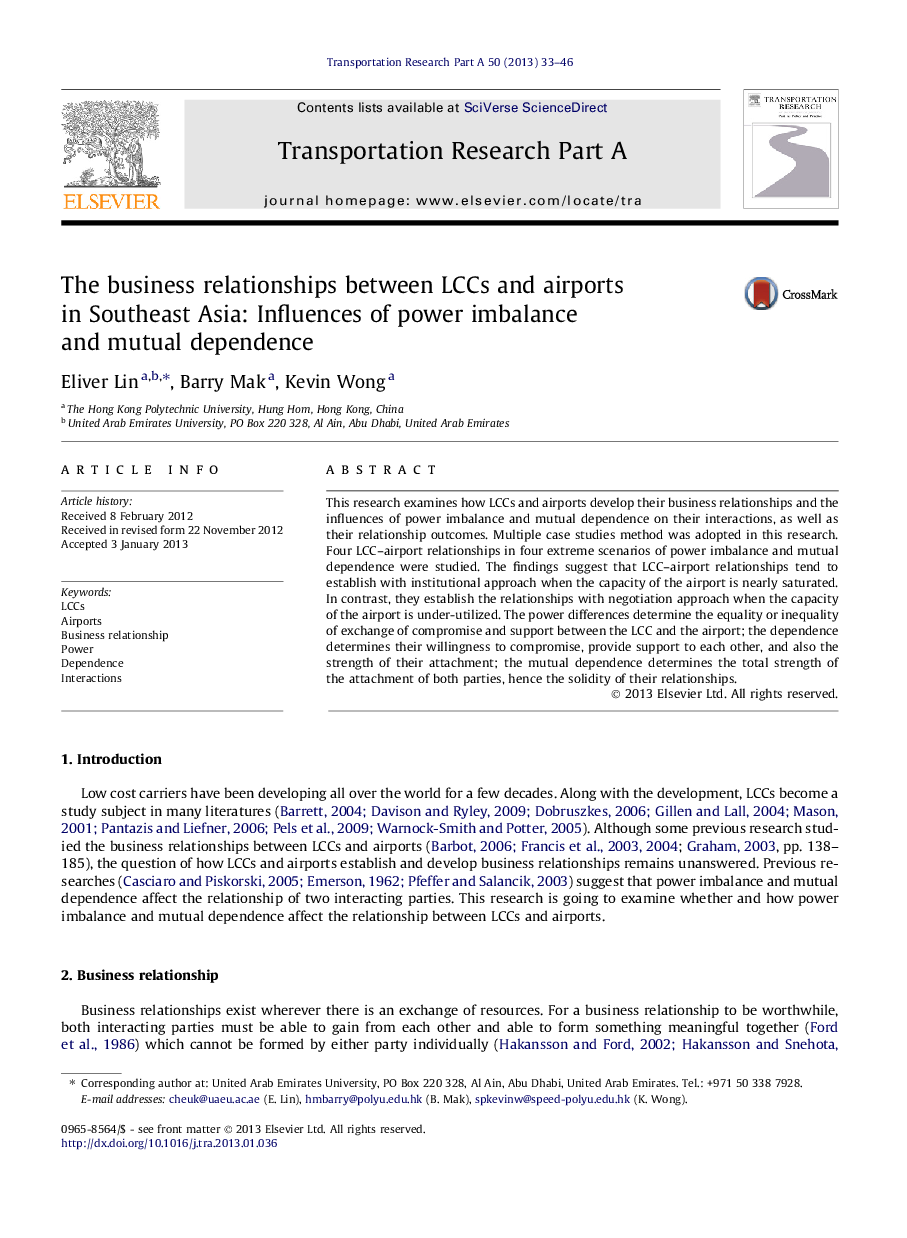| کد مقاله | کد نشریه | سال انتشار | مقاله انگلیسی | نسخه تمام متن |
|---|---|---|---|---|
| 310804 | 533371 | 2013 | 14 صفحه PDF | دانلود رایگان |

This research examines how LCCs and airports develop their business relationships and the influences of power imbalance and mutual dependence on their interactions, as well as their relationship outcomes. Multiple case studies method was adopted in this research. Four LCC–airport relationships in four extreme scenarios of power imbalance and mutual dependence were studied. The findings suggest that LCC–airport relationships tend to establish with institutional approach when the capacity of the airport is nearly saturated. In contrast, they establish the relationships with negotiation approach when the capacity of the airport is under-utilized. The power differences determine the equality or inequality of exchange of compromise and support between the LCC and the airport; the dependence determines their willingness to compromise, provide support to each other, and also the strength of their attachment; the mutual dependence determines the total strength of the attachment of both parties, hence the solidity of their relationships.
► LCC–airport relationships tend to be established with institutional approach when the airport capacity is nearly saturated.
► They tend to establish relationships with negotiation approach when the airport is under-utilized.
► The power differences determine the equality or inequality of exchange of compromise and support between LCCs and airports.
► The dependence determines their willingness to compromise, support and strength of attachment to the counterpart.
► The mutual dependence determines the total strength of their attachment, hence the solidity of their relationships.
Journal: Transportation Research Part A: Policy and Practice - Volume 50, April 2013, Pages 33–46